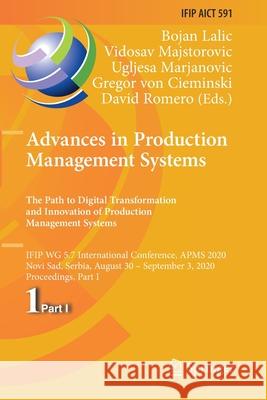Advances in Production Management Systems. the Path to Digital Transformation and Innovation of Production Management Systems: Ifip Wg 5.7 Internation » książka
topmenu
Advances in Production Management Systems. the Path to Digital Transformation and Innovation of Production Management Systems: Ifip Wg 5.7 Internation
ISBN-13: 9783030579951 / Angielski / Miękka / 2021 / 692 str.
Advances in Production Management Systems. the Path to Digital Transformation and Innovation of Production Management Systems: Ifip Wg 5.7 Internation
ISBN-13: 9783030579951 / Angielski / Miękka / 2021 / 692 str.
cena 402,53
(netto: 383,36 VAT: 5%)
Najniższa cena z 30 dni: 385,52
(netto: 383,36 VAT: 5%)
Najniższa cena z 30 dni: 385,52
Termin realizacji zamówienia:
ok. 16-18 dni roboczych.
ok. 16-18 dni roboczych.
Darmowa dostawa!
Kategorie:
Kategorie BISAC:
Wydawca:
Springer
Seria wydawnicza:
Język:
Angielski
ISBN-13:
9783030579951
Rok wydania:
2021
Wydanie:
2020
Numer serii:
000385858
Ilość stron:
692
Waga:
0.99 kg
Wymiary:
23.39 x 15.6 x 3.68
Oprawa:
Miękka
Wolumenów:
01
Dodatkowe informacje:
Wydanie ilustrowane











